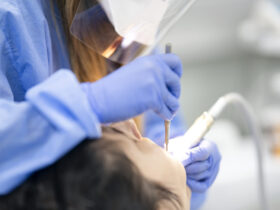If you are a parent, you may be concerned about dental problems that your child may be facing because of incorrect jaw and teeth growth. Chances are they may need to get dental braces. If you are wondering whether or not your child is of the right age to get braces, you must consult with a good Sterling Heights pediatric dentist. If your child’s dentist decides your child can get braces, they may explain how these can benefit your child’s mouth.
Braces are More Than Just Cosmetic
Dental braces are used to correct imperfect teeth and help your child get a better smile. Also, they can address any problems that make it hard for your child to eat, speak, or even breathe. Thus, if your child has problems that go beyond being not satisfied with the appearance of their teeth, getting braces might address such issues.
When Your Child Should Get Braces
The right age for your child to get dental braces depends on them as children grow at different rates. Some children go through puberty earlier than others. But generally, your child can get braces when they reach the age of 9 and 14. Often, these ages are before a child may have gone through puberty. During puberty, adjusting the jaw and teeth can be hard as they have settled into their positions after puberty.
Kinds of Braces
Before, the only option for braces is those with metal brackets. But today, dentists can customize your options. Apart from metal braces, you can opt for ceramic braces and Invisalign or clear aligners.
- Ceramic braces. While they look like ceramic braces, they are more inconspicuous, making them ideal for very self-conscious kids and those who do not want other people to notice their teeth.
- Invisalign. This uses clear retainer trays customized for a patient. Invisalign clear aligners mold to your child’s teeth. This means that nobody will know your child has them on. Your child can take them, out if they want, giving them more versatility on what they want to consume.
Your child may need braces if they gapped or crooked teeth. Also, getting braces is especially important if they have trouble breathing, difficulty eating, snoring while sleeping, misaligned bites, crowded teeth, and speech issues. If you notice any of these issues, you must schedule an appointment with your child’s dentist. Addressing dental problems early on will prevent them from causing more complications.












